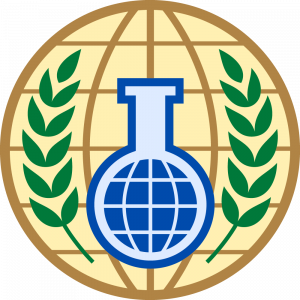
Organisation for the Prohibition of Chemical Weapons (OPCW)
Organisation pour l'interdiction des armes chimiques (OIAC)
Organización para la Prohibición de las Armas Quimicas (OPAQ)
Search Open Yearbook
This information is part of the Open Yearbook, a free service of UIA's subscription-based Yearbook of International Organizations (YBIO). It includes profiles of non-profit organizations working worldwide in all fields of activity. The information contained in the profiles and search functionality of this free service are limited.
The full-featured Yearbook of International Organizations (YBIO) includes over 72,500 organization profiles, additional information in the profiles, sophisticated search functionality and data export. For more information about YBIO, please click here or contact us.
The UIA is a leading provider of information about international non-profit organizations. The aim of the Open Yearbook is to promote the activities of international non-governmental organizations (INGOs) and intergovernmental organizations (IGOs).
Contact Details
URL: https://www.opcw.org/
Twitter: https://twitter.com/opcw
Facebook: https://www.facebook.com/opcwonline/
Founded
1997-04-29 The Hague Netherlands
History
On entry into force of the T-XT9299 - Convention on the Prohibition of the Development, Production, Stockpiling and Use of Chemical Weapons and on Their Destruction (CWC). The Convention, also referred to as 'Chemical Weapons Convention', was adopted by F-XE6548 - Conference on Disarmament (CD) on 3 Sep 1992, Geneva (Switzerland), after approval by the General Assembly of the A-XA3375 - United Nations (UN); was opened for signature in Jan 1993, Paris (France); and entered into force on 29 Apr 1997. Prior to the Convention coming into force, administration was covered by U-XE1848 - Preparatory Commission for the Organization for the Prohibition of Chemical Weapons.
Aims
Oversee implementation of the Chemical Weapons Convention; provide a forum for consultation and cooperation among states party to the Convention and for international cooperation in the peaceful uses of chemistry; provide states party to the Convention with assistance and protection against the use or threat of use of chemical weapons.
Events
2024-11-25 | The Hague, Netherlands – Conference of the States Parties118 past events available with paid subscription only.
Activities
Available with paid subscription only.Structure
Principal organ: Conference of the States parties, meeting in annual session, always in The Hague (Netherlands), and in special sessions convened as necessary, comprises representatives of all member states. Executive Council comprises 41 representatives elected from among member states on a rotating basis for 2-year terms. Technical Secretariat in The Hague; consists of Divisions. Subsidiary Bodies.
Languages
Available with paid subscription only.Staff
Available with paid subscription only.Annual Budget
Available with paid subscription only.Finance
Available with paid subscription only.Relations with Inter-Governmental Organizations
Available with paid subscription only.Relations with Non-Governmental Organizations
Available with paid subscription only.Publications
Available with paid subscription only.Members
Available with paid subscription only.Type I Classification
Available with paid subscription only.Type II Classification
Available with paid subscription only.Subjects *
Available with paid subscription only.UN Sustainable Development Goals **
UIA Org ID
XB0057
Last News
2024
** UN SDGs are linked to the subject classification.
← return to your search page to find additional profiles.
UIA allows users to access and make use of the information contained in its Databases for the user’s internal use and evaluation purposes only. A user may not re-package, compile, re-distribute or re-use any or all of the UIA Databases or the data* contained therein without prior permission from the UIA.
Data from database resources may not be extracted or downloaded in bulk using automated scripts or other external software tools not provided within the database resources themselves. If your research project or use of a database resource will involve the extraction of large amounts of text or data from a database resource, please contact us for a customized solution.
UIA reserves the right to block access for abusive use of the Database.
* Data shall mean any data and information available in the Database including but not limited to: raw data, numbers, images, names and contact information, logos, text, keywords, and links.